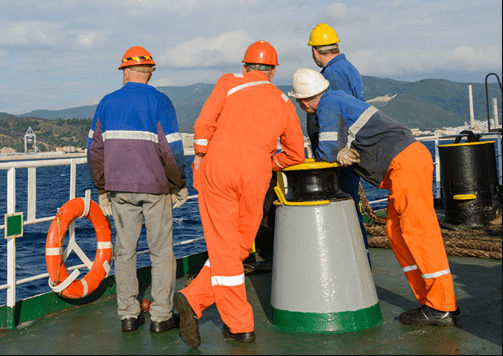By Felicity Landon from London
No chance of walking on Dartmoor one wet morning in Devon last week… but the weather did provide the opportunity for a bit of ‘maritime research’ and a small excuse for a ‘what I did on my holidays’ report.
The location: Buckland Abbey, once the home of Sir Francis Drake and now looked after by the National Trust, whose displays gave a vivid and dismal picture of life at sea in Tudor times.
Never mind the bravery of those sailors setting out across unknown oceans searching out unknown territories – it was how they endured the grim realities of life on the ocean waves that impressed me most. Crammed into small ships; quarters infested with rats and lice; living on ship’s biscuits infested with beetles and weavils; drinking ale, which was clearly a safer option than what passed for drinking water. And, in the case of Drake’s circumnavigation, only a one in five chance of your ship making it home at all.
How those seafarers would have rejoiced at the contents of the Maritime Labour Convention, I thought! I’ve had quite a few conversations recently about the perceived impact of the MLC on welfare provision for seafarers, and this visit brought to mind the comments of Roger Stone, Southampton port chaplain with the Apostleship of the Sea.
He was on a panel of speakers at the Maritime Welfare Debate during London International Shipping Week, and his take on the situation seemed pretty depressing. He had specifically asked seafarers on every ship he visited recently about their understanding of the MLC and what it’s for. He found ‘large-scale ignorance of MLC provisions and that there is a very long way to go’.
“At least 80% had to stop and think for some time. Some of them replied – errm, the Labour Convention,” he said. “When I said that a copy of the MLC should be on the ship, one Filipino seafarer went to look for it and failed to find it. Not one seafarer I spoke to had read it. Some said it was for officers only. And some officers commented it was actually an additional burden on them because they had to attend training for two or three days in their holidays, and they had to pay for that training.”
It was even said that masters and senior officers ‘prefer to close their ears to its [the MLC’s] existence’, said Rev. Stone.
Some seafarers had no idea what the MLC was about and others only had a vague idea that it was about rest hours or hours of work, while a few understood it was about accommodation and food. Hardly anyone knew it was about welfare, access to welfare facilities, or shore leave, he said.
As ever, he said, the good companies will be doing good things and doing as much as they can to maintain the welfare of their crew on the ship, and they no doubt enjoy high retention rates as a result and high morale.
“At the other end of the spectrum – but that doesn’t mean the bottom 5%,because I think it is much higher than 5%– I meet seafarers where conditions on board don’t go anywhere near meeting their cultural requirements – for example, in terms of food.”
Rev. Stone said he had come across cases where leftover food from the officers’ mess was sent to the crew mess; where seafarers had to go ashore to buy supplies; where crew were still sharing cabins, against the MLC provisions; and where recreation facilities were ‘woefully inadequate’.
“For example, TV viewing; on many ships where the officers are of one nationality and the crew another, the same TV programmes are being broadcast in both messes in a language the crew don’t understand at all.”
Does the MLC have teeth? It was a straight ‘no’ from Bruce Hailey, maritime lawyer with Salvus Law, also on the discussion panel. In a recent case of an arrested ship, the P&I club was approached to repatriate the crew of 17 – and the club’s initial response was ‘that is not our responsibility,’ he said. “That is a shocking example of someone who really should have known better trying to evade the responsibilities of the MLC.’
Rev. Stone told of seafarers’ despair when limited or a complete lack of internet access meant they were unable to keep in touch with their families, with many marriages disintegrating as a result. But having painted ‘scenes of doom and gloom’, he finished on a more positive note.
“When a tanker berthed in Rotterdam, the master arranged for ten of the crew to go ashore to a local sports facility to enjoy three games of five-a-side basketball. “They saw that as a positive effect of MLC. The master – clearly a switched-on individual – added that things are changing, because Port State Control is now asking questions of the crew about accommodation, shore leave, etc.”
Let’s hope he’s right.
Copyright Ships & Ports Ltd. Permission to use quotations from this article is granted subject to appropriate credit given to www.shipsandports.com.ng as the source.

